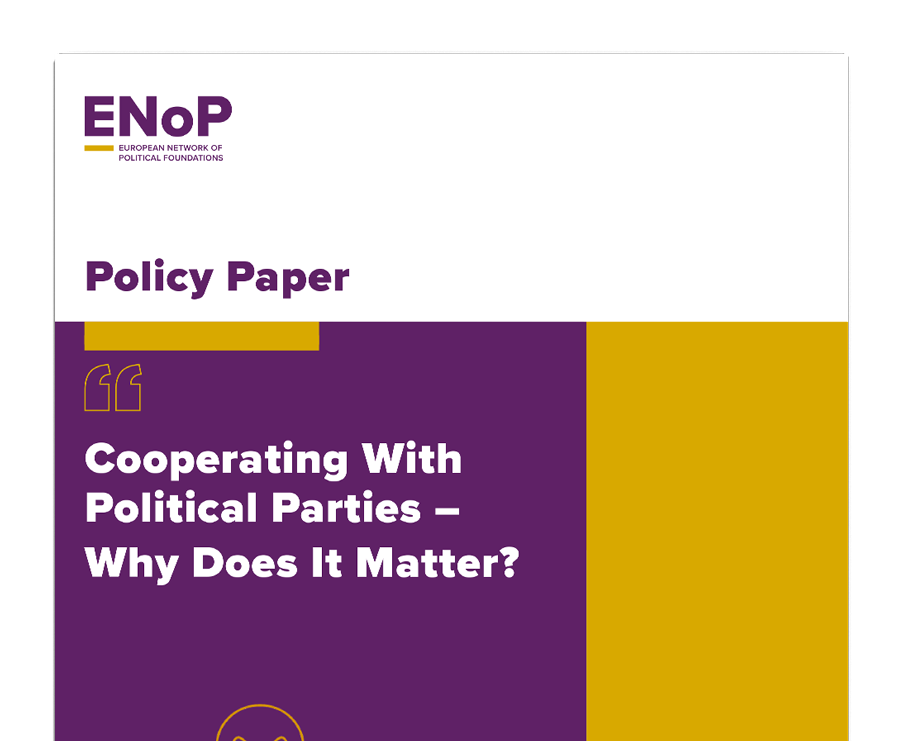Want ENoP in your Inbox?
Receive the latest news from the ENoP Network
"*" indicates required fields

Political parties are a cornerstone of representative democracy and serve a function like no other institution. Democratic political parties contest and seek to win elections in order to govern and manage government institutions. They offer alternative public policy proposals which are shaped by citizens’ preferences.
Political parties – through their candidates running for elections – provide citizens with political options to select their preferred party and candidate. In democracies, political parties ensure that elections are genuine expressions of the people’s will. Furthermore, they perform essential functions in between elections.
They are a vital connecting link between state and society at national and particularly at local level. They carry out a political leadership role a modern democracy cannot function without. As much as citizens’ initiatives and social movements are necessary for political innovation, opposition and criticism, ultimately, they depend very much on the parties and elected representatives who carry the responsibility to translate their demands into actual legislative proposals.
When not part of the governing party (coalition), democratic parties provide a constructive and critical opposition by presenting themselves as the alternative government voters may wish to choose – thus pressuring the incumbents to be more responsive to the public’s interests.
The expression of conflicting views can actually help to create a better understanding of the issues and to identify solutions. Outside election periods, democratic parties also offer citizens opportunities to participate in political life and encourage active links between citizens and those who represent them.